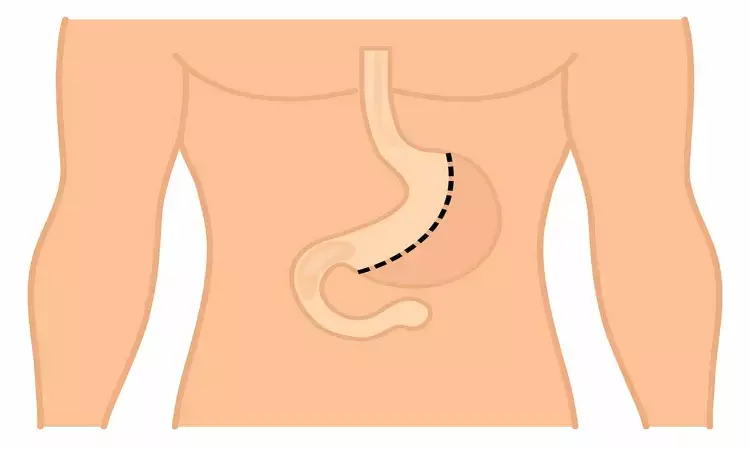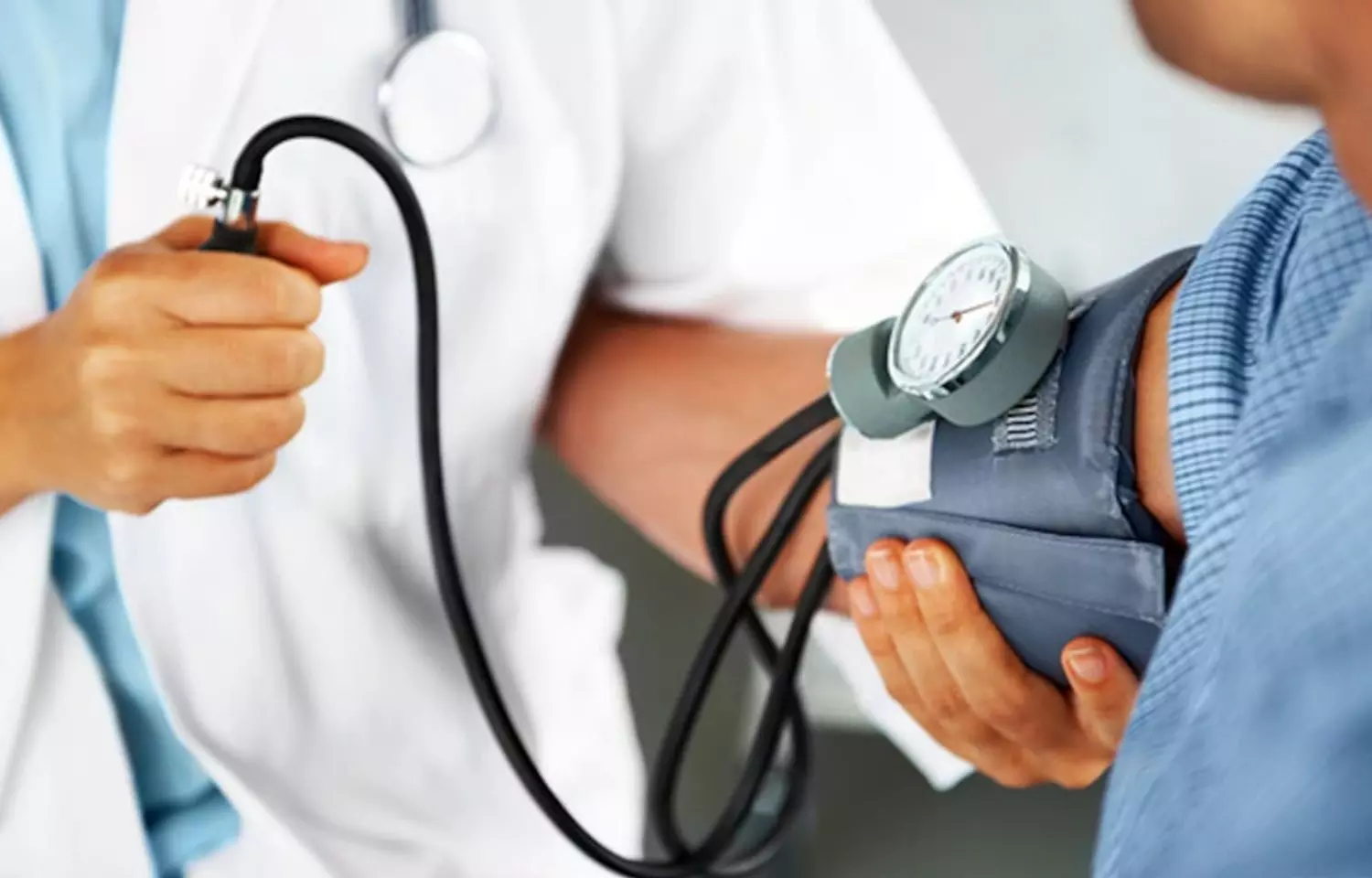- Home
- Medical news & Guidelines
- Anesthesiology
- Cardiology and CTVS
- Critical Care
- Dentistry
- Dermatology
- Diabetes and Endocrinology
- ENT
- Gastroenterology
- Medicine
- Nephrology
- Neurology
- Obstretics-Gynaecology
- Oncology
- Ophthalmology
- Orthopaedics
- Pediatrics-Neonatology
- Psychiatry
- Pulmonology
- Radiology
- Surgery
- Urology
- Laboratory Medicine
- Diet
- Nursing
- Paramedical
- Physiotherapy
- Health news
- Fact Check
- Bone Health Fact Check
- Brain Health Fact Check
- Cancer Related Fact Check
- Child Care Fact Check
- Dental and oral health fact check
- Diabetes and metabolic health fact check
- Diet and Nutrition Fact Check
- Eye and ENT Care Fact Check
- Fitness fact check
- Gut health fact check
- Heart health fact check
- Kidney health fact check
- Medical education fact check
- Men's health fact check
- Respiratory fact check
- Skin and hair care fact check
- Vaccine and Immunization fact check
- Women's health fact check
- AYUSH
- State News
- Andaman and Nicobar Islands
- Andhra Pradesh
- Arunachal Pradesh
- Assam
- Bihar
- Chandigarh
- Chattisgarh
- Dadra and Nagar Haveli
- Daman and Diu
- Delhi
- Goa
- Gujarat
- Haryana
- Himachal Pradesh
- Jammu & Kashmir
- Jharkhand
- Karnataka
- Kerala
- Ladakh
- Lakshadweep
- Madhya Pradesh
- Maharashtra
- Manipur
- Meghalaya
- Mizoram
- Nagaland
- Odisha
- Puducherry
- Punjab
- Rajasthan
- Sikkim
- Tamil Nadu
- Telangana
- Tripura
- Uttar Pradesh
- Uttrakhand
- West Bengal
- Medical Education
- Industry
Patients with advanced proximal gastric cancer located at posterior gastric wall may benefit from LSTG

Researchers have found in a new study that Patients with advanced proximal gastric cancer located at posterior gastric wall may benefit from LSTG.
According to the study, patients with advanced proximal gastric cancer (APGC) located in the posterior gastric wall have benefitted from the laparoscopic total gastrectomy combined with spleen-preserving splenic hilar lymphadenectomy (LSTG) technique due to improved 3-year disease-free survival (DFS).
This new trial was published in the journal JAMA Surgery.
The incidence of proximal gastric cancer has escalated in recent years. Laparoscopic gastrectomy for Gastric cancer is a safe technique. Past literature has shown that LSTG is a safe and feasible technique for patients with APGC. But there is uncertainty regarding the safety and oncological outcomes of LSTG for APGC without invasion into the greater curvature. Hence researchers conducted an open-label, prospective randomized clinical trial to compare the long-term and short-term efficacy of LSTG and conventional laparoscopic total gastrectomy for patients with APGC that has not invaded the greater curvature.
From January 2015 to October 2018, nearly 536 patients with clinical stage cT2 to 4a/N0 to 3/M0 APGC without invasion into the greater curvature were enrolled and were followed up till October 31, 2021. Patients were randomized to the LSTG group (D2 + No. 10 group) and the conventional laparoscopic total gastrectomy (D2 group). The primary outcome was 3-year disease-free survival (DFS) and the secondary outcomes were 3-year overall survival (OS) and morbidity and mortality within 30 days after surgery.
Trial Results:
- Of the 526 included patients, 392 (74.5%) were men, and the mean (SD) age was 60.6 (9.6) years.
- There were 263 patients in the D2 + No. 10 group and 263 in the D2 group.
- The 3-year DFS was 70.3% for the D2 + No. 10 group and 64.3% for the D2 group.
- The 3-year OS in the D2 + No. 10 group was better than that in the D2 group (75.7% vs 66.5%).
- Splenic hilar lymphadenectomy was not an independent protective factor for DFS or OS as per the multivariate analysis.
- Patients with advanced posterior gastric cancer in the D2 + No. 10 group had better 3-year DFS (92.9% vs 39.3%) and OS (92.9% vs 42.9%) than those in the D2 group as per the stratification analysis.
- A survival benefit was noted in patients with advanced posterior gastric cancer from No. 10 lymph node dissection as per the multivariate analysis (DFS: HR, 0.10; 95% CI, 0.02-0.46; OS: HR, 0.12; 95% CI, 0.03-0.52).
This trial is the first of its kind to compare the short-term and long-term efficacy of LSTG and conventional laparoscopic total gastrectomy for APGC without invasion into the greater curvature. Though LSTG could not significantly improve the 3-year DFS of patients with APGC without invasion into the greater curvature it was advantageous to patients with APGC located posterior gastric wall.
Further reading:
Lin J, Lin J, Wang Z, et al. Assessment of Laparoscopic Spleen-Preserving Hilar Lymphadenectomy for Advanced Proximal Gastric Cancer Without Invasion Into the Greater Curvature: A Randomized Clinical Trial. JAMA Surg. Published online November 16, 2022. doi:10.1001/jamasurg.2022.5307
BDS, MDS
Dr.Niharika Harsha B (BDS,MDS) completed her BDS from Govt Dental College, Hyderabad and MDS from Dr.NTR University of health sciences(Now Kaloji Rao University). She has 4 years of private dental practice and worked for 2 years as Consultant Oral Radiologist at a Dental Imaging Centre in Hyderabad. She worked as Research Assistant and scientific writer in the development of Oral Anti cancer screening device with her seniors. She has a deep intriguing wish in writing highly engaging, captivating and informative medical content for a wider audience. She can be contacted at editorial@medicaldialogues.in.
Dr Kamal Kant Kohli-MBBS, DTCD- a chest specialist with more than 30 years of practice and a flair for writing clinical articles, Dr Kamal Kant Kohli joined Medical Dialogues as a Chief Editor of Medical News. Besides writing articles, as an editor, he proofreads and verifies all the medical content published on Medical Dialogues including those coming from journals, studies,medical conferences,guidelines etc. Email: drkohli@medicaldialogues.in. Contact no. 011-43720751




